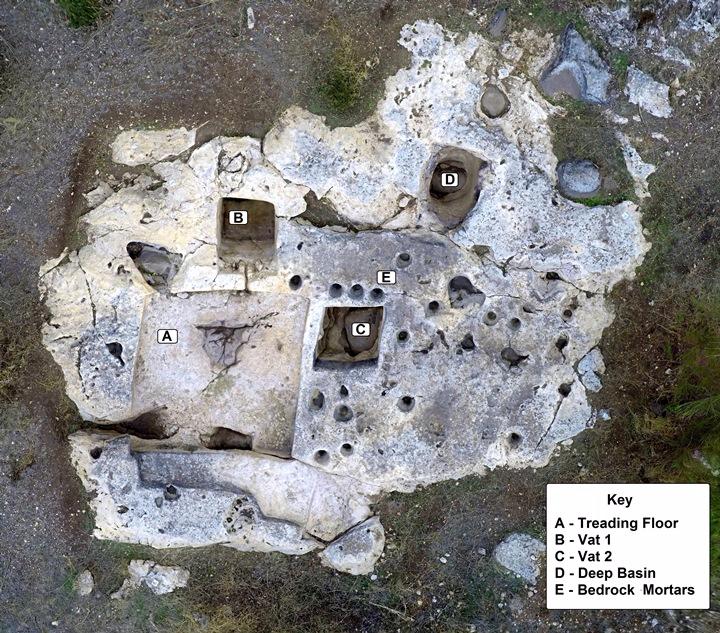An archeological expedition in Israel has turned up new evidence that seemingly corroborates the story of Naboth’s vineyard found in 1 Kings in the Bible.
Dr. Norma Franklin and her team at the Jezreel Expedition used laser technology to analyze data in the Jezreel Valley and discovered several wine and olive presses, including bottle-shaped pits carved into bedrock that could have been used to store wine, suggesting the region was a major wine producing area in biblical times.

Photo Credit: Jezreel Expedition
While Franklin does not consider herself to be religious, she told Breaking News Israel that the findings align to a large degree with what is described in the Bible.
“As an archaeologist, I cannot say that there was definitely a specific man named Naboth who had a particular vineyard,” she said. “The story is very old but from what I have found, I can say that the story as described in the Bible quite probably could have occurred here in the Jezreel.”
Because vineyards do not actually leave behind many lasting artifacts, it is impossible to determine the exact construction period of the winepress. The structure of it, however, leads Franklin to believe it was established prior to 300 BC.
In the Bible, Naboth owns a fertile vineyard on the eastern slope of the hill of Jezreel near the palace of King Ahav. As the story goes, the king wanted to turn the land into a vegetable garden, but Naboth did not wish to sell it because it was an inheritance and Torah law forbade him from selling it outright. Queen Jezebel stepped in and staged a mock trial in order to seize the property, before the prophet Elijah confronted Ahav, who ultimately repented.
Franklin questions the details of the story of Naboth, noting that it wouldn’t make sense for the king to destroy the vineyard due to the significant entertaining needs of the palace. Additionally, based on the socio-economic status of those who lived in the region at the time, Franklin does not believe Naboth would have lived in Jezreel.
“Calling him a Jezreeli implies that he was from there but he did not live there,” she said. “Owning a vineyard would make him wealthy since wine was an important commodity. I reckon that since he was from the aristocracy he probably lived in Samaria and had more than one vineyard. This would give a slightly different picture than the Bible, which implies, though does not state explicitly, that he was a poor man being abused by the wealthy king.”
Despite her differing opinions on some aspects of the story, Franklin believes the Bible is an important tool for archeologists like herself because of the context it can provide to certain discoveries.
“There is no doubt that the Bible is a useful source,” she concluded. “All archaeologists use the Bible, but some use it more cautiously.”
(H/T: The Christian Post)


